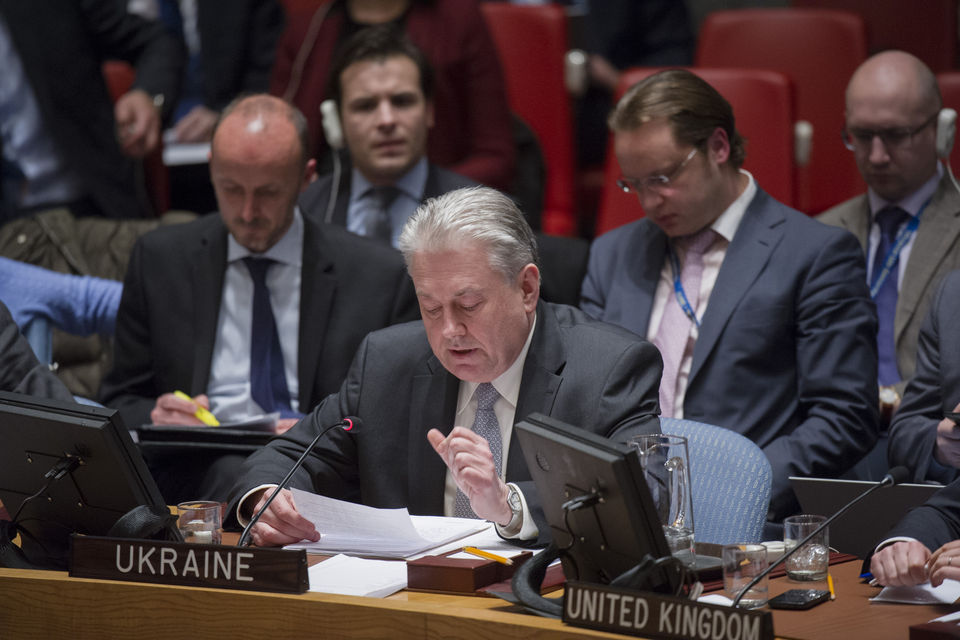Statement by Ambassador Volodymyr Yelchenko following the vote on UNSC draft resolution on Syria, vetoed by Russia.

Ukraine is honored to co-sponsor and vote in favor of this resolution. We commend the hard work by the French and Spanish delegations on drafting and negotiating this very important document.
We are extremely dismayed — but not surprised — by the fact that all these efforts were at the end derailed by the veto power of Russia. This is the fifth veto exercised by Russia with respect to Syria draft resolutions over the past years.
Had the resolution seen the light and been adopted, it would have been a real, meaningful step towards exercising the preventive diplomacy by this Council; it would have helped to prevent what is about to become one of the gravest humanitarian tragedies of our times.
History will hold accountable those who didn’t let this Council discharge its duties.
Bearing in mind a clear humanitarian character of the draft resolution aimed at stopping complete erasing of Eastern Aleppo by Christmas, we acted fully in line with the Code of Conduct Regarding Security Council Action against Genocide, Crimes against Humanity or War Crimes which Ukraine joined last year.
We are extremely disappointed that the Political Statement on the Suspension of the Veto in Case of Mass Atrocities — an initiative designed to curb the use of veto by the permanent members of the Council — is yet to gain traction. And here again, the Russian Federation is interested more in safeguarding its privileges than in fulfilling its responsibilities before the international community. For Ukraine, it is not something new — we have seen Russia exercising its veto quite recently, in March 2014 and July 2015. In those cases, Council’s action would have saved thousands of human lives and sent a powerful message to perpetrators of heinous acts against civilians that their crimes would not go unpunished. What we see today has a meaning — Russia’s policies remain unchanged.
If the current dynamics in the Syrian conflict continue and the logic of war prevails over the voices of peace, we as the international community face a real risk of a protracted deadly conflict lasting for many years ahead.
Repercussions of such a scenario are a Pandora box that is easy to open but nearly impossible to close: more refugees flowing to Europe and other places, more destabilization in the neighboring countries, rising death toll and deepening humanitarian crisis.
If this is not a hybrid warfare Russia is waging to reassert itself in the world at any price, then black is white and white is black.
Those who oppose peace and prolong war risk setting wider region ablaze in a fire of sectarian war and radicalization, giving more space to the extremists to exploit.
Finally, I want to echo Special Envoy Stefan De Mistura’s words that we don’t want to live through another Srebrenica and Rwanda.
To this I would add: we also don’t want to live through another Grozny.
